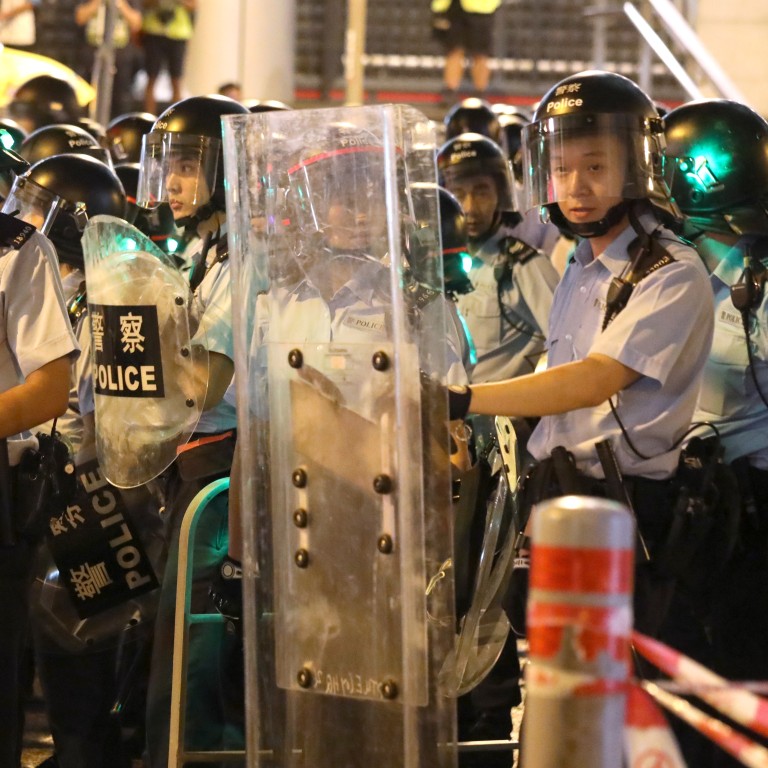
Hong Kong police defend decision to withdraw from posts at two hospitals, as tension between public and force intensifies
- Commissioner of Police Stephen Lo says decision to vacate 24-hour posts made after ‘political animosity’ brought into institutions
- Police have received more than 100 complaints about protests but also more than 1,000 complaints from officers about harassment from public
Commissioner of Police Stephen Lo Wai-chung said on Thursday the decision to vacate the 24-hour posts at Queen Elizabeth and Yan Chai hospitals was made after some people “brought political animosity” into the institutions.
“My colleagues are based at hospitals 24 hours,” Lo said. “If it is an environment with hostility, they really cannot do their work well.”
Also defending the move was John Tse Chun-chung, chief superintendent of police at the force’s public relations branch, who told a radio programme earlier in the day: “It is not withdrawal, nor retaliation nor escaping … It is to strike a balance between continuing our services to citizens and reducing friction with hospital staff.”
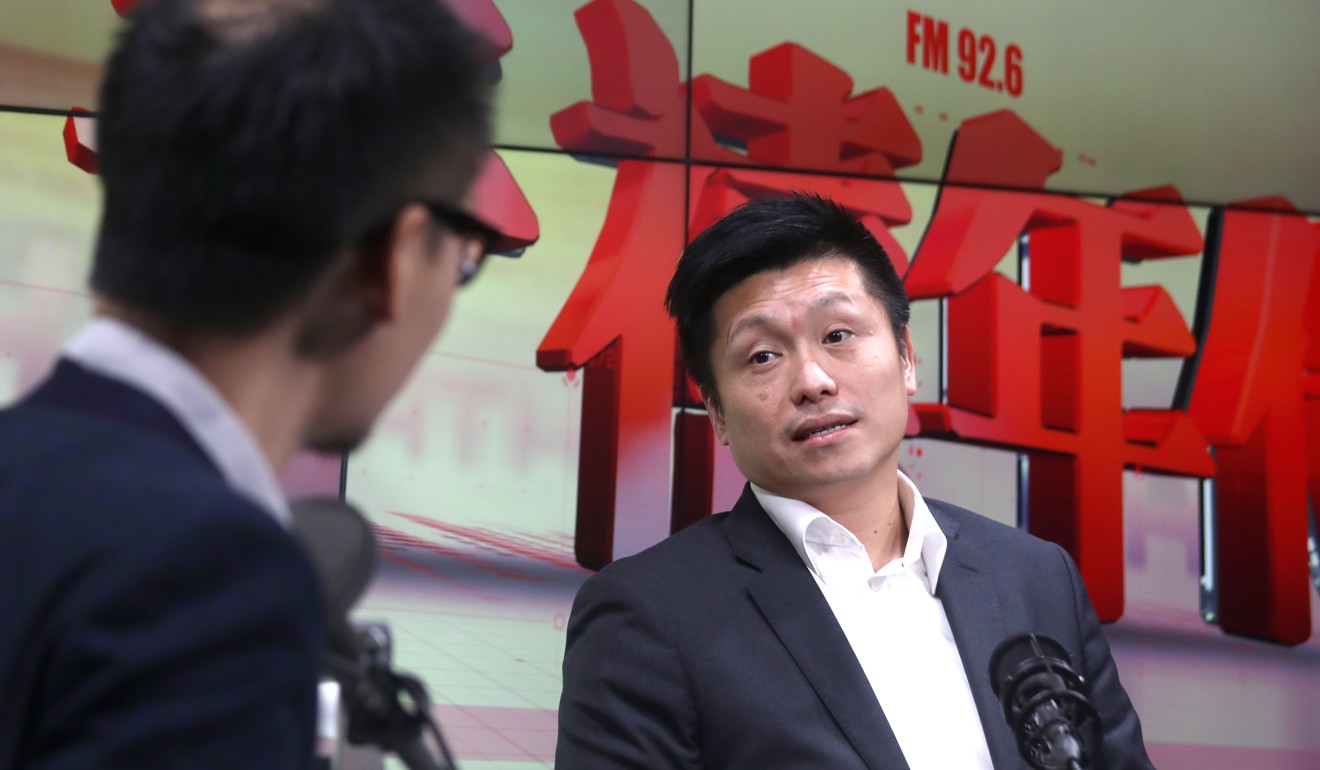
Tse said the officers had not left the hospitals, but would instead patrol the area and return to their posts at short notice if needed. He said police would meet the Hospital Authority, which runs all public hospitals in the city, on Friday afternoon, when officers would pass the authority details of the alleged abuse.
Tse said some medical workers had called officers dogs and some took away chairs on the wards, saying: “The seat is not for you.”
Dr Leung Pak-yin, the authority’s chief executive, said hospitals were caught off guard by the sudden change.
“As police officers were suddenly no longer in their posts, we did feel a bit uneasy,” Leung said on Thursday. “But we knew those officers were nearby ... and our services were not affected.”
Leung said it would be unsatisfactory if allegations of hospital staff insulting officers proved true and said he hoped Friday’s meeting would bring plans to draft clearer guidelines on respecting patients’ privacy while collecting information for law enforcement.
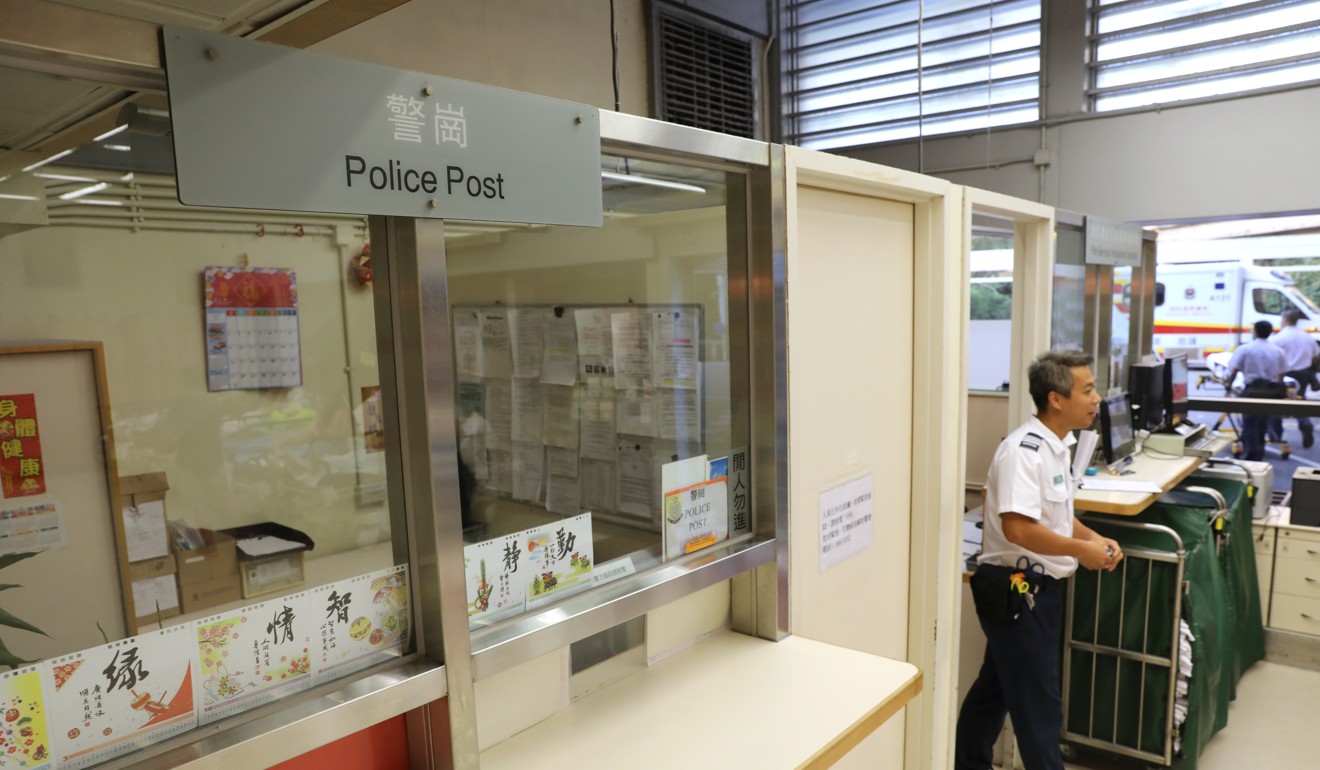
About 60 people were surrounded by police outside Southorn Playground on Johnston Road, and one of them – Yeung Yat-long, a former auxiliary policeman – was arrested on suspicion of assaulting a police officer.
A police spokesman said Yeung had been released but had refused the bail conditions. The spokesman said the force would reserve its right to prosecute, and the investigation would continue.
Officers searched and recorded the personal information of others, who were later allowed to leave.
During the clashes on June 12, the force used tear gas, rubber bullets and beanbag rounds to disperse large crowds of protesters after some threw sharp metal rods and bricks at officers. But several videos in which officers appeared to use force on non-violent protesters and journalists went viral, and cases of police arresting protesters at hospitals were widely reported, sparking a public backlash.
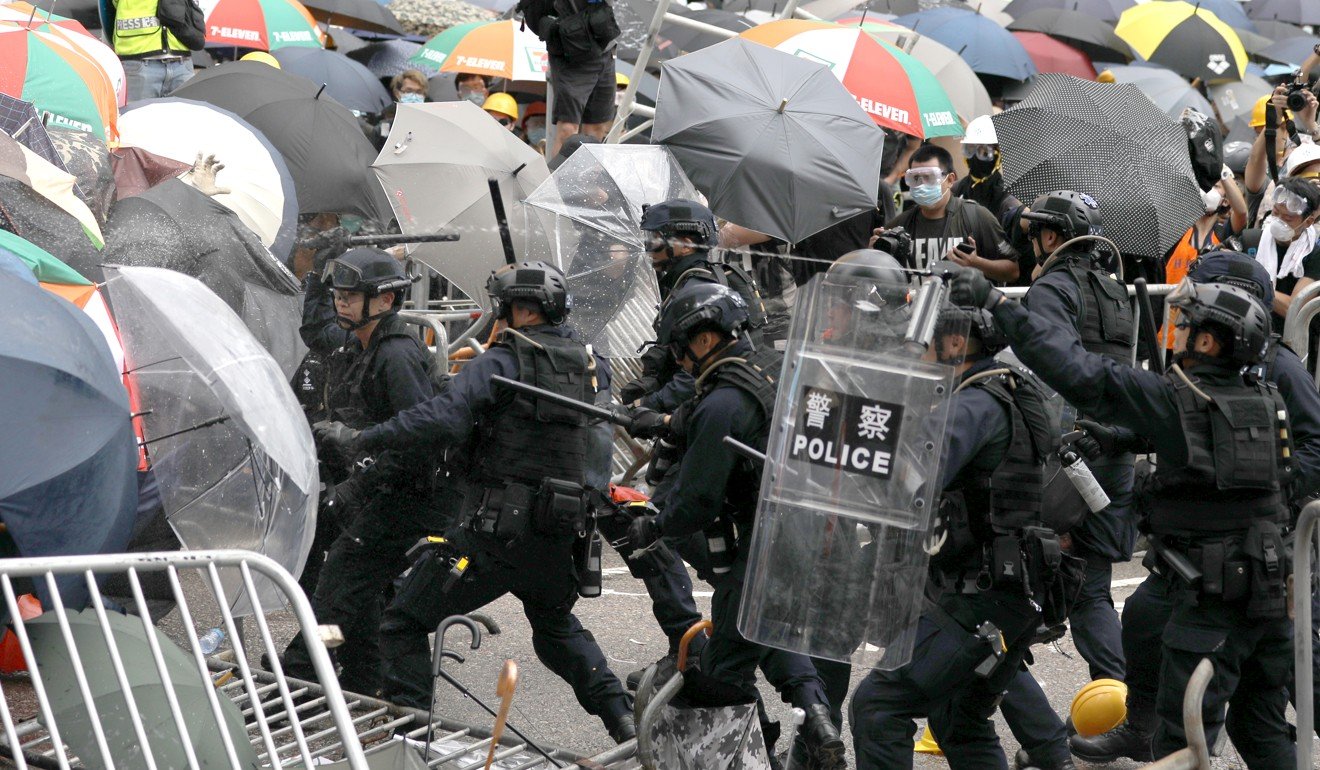
Dr Arisina Ma Chung-yee, a representative of the Hong Kong Public Doctors’ Association, said the police posts were close to emergency wards at the two hospitals due to logistical constraints, so suspicions were raised about whether patients’ data could be leaked to police.
She said authorities in the long term should review whether the posts might be placed further away.
Ma said while she did not agree with subjecting officers to verbal abuse, she believed the deteriorating relationship between police and medical workers reflected the wider social atmosphere of mistrust between residents and the authorities.
“The problem can’t be solved by medical workers alone,” she said.
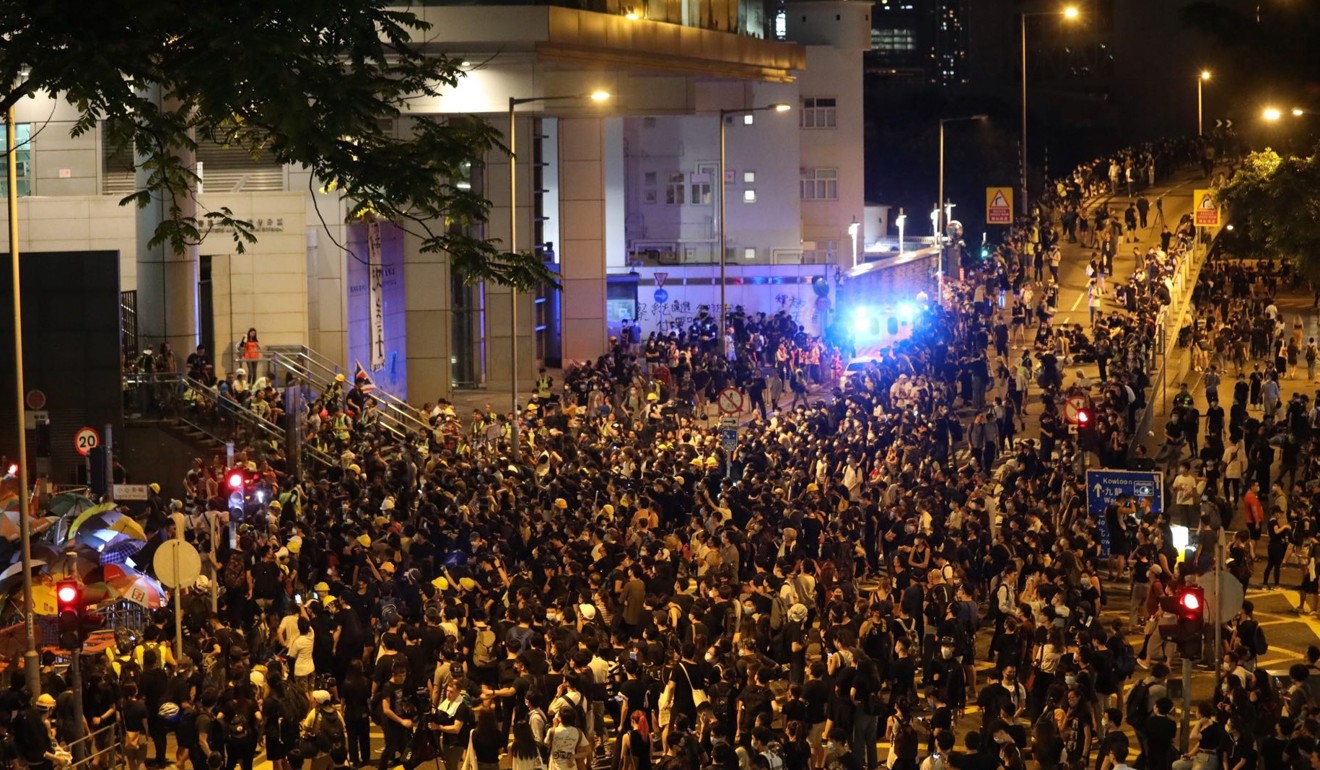
Five opposition lawmakers on Thursday filed grievances with the Complaints Against Police Office – the force’s internal watchdog – and the Independent Police Complaints Council, against riot police who did not display identification numbers on their uniforms on the day of the clashes.
Tse said the Complaints Against Police Office had by Wednesday received more than 100 complaints about officers’ handling of protests, including 10 alleging officers beat up protesters and 20 accusing police of abusing their power.
But the force had also received more than 1,000 complaints from officers, saying their personal details, or those of their family members, had been dredged up online by vigilantes. Some officers said people even showed up around their family members’ workplaces, causing them to feel harassed.
Meanwhile, former police commissioner Tang King-shing called on people to join a pro-police rally on Sunday afternoon to “express thanks and support” for the force.
Tang said police were facing “completely unreasonable attacks from all angles”, and he hoped people could tell the city and the world that “Hong Kong is our home, we love Hong Kong and the police force”.
Additional reporting by Clifford Lo, Rachel Cheung and Elizabeth Cheung

